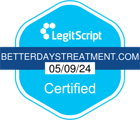When it comes to addiction recovery, there’s no one-size-fits-all approach. While 12-step programs like Alcoholics Anonymous (AA) and Narcotics Anonymous (NA) have been widely popular for decades, they may not resonate with everyone. Fortunately, non-12-step rehab programs provide a valuable alternative for those seeking recovery through different methods and philosophies. In this blog, we’ll delve into non-12-step rehab programs, exploring what they are, how they work, and who might benefit from them.
What Are Non-12-Step Rehab Programs?
Non-12-step rehab programs are addiction recovery programs that offer an alternative to the traditional 12-step model. Unlike the structured, spiritually-based approach of AA and NA, non-12-step programs focus on individualized treatment plans and a more diverse range of therapeutic techniques. These programs recognize that addiction recovery is a highly personal journey, and what works for one person may not work for another. A Focus on Self-Empowerment Non-12-step programs empower individuals to take control of their recovery journey. They emphasize personal responsibility and self-efficacy, helping individuals build the confidence and skills needed to maintain long-term sobriety.
Features of Non-12-Step Rehab Programs:
Individualized Treatment Plans in Non-12-step programs often start with a comprehensive assessment of the individual’s needs, taking into account their unique circumstances, substance abuse, and underlying mental health issues. This personalized approach ensures that treatment is tailored to the individual’s specific requirements. Many non 12 step programs adopt a holistic approach to recovery. This means addressing not only the addiction itself but also the physical, emotional, and spiritual aspects of the individual’s life.
Holistic therapies may include yoga, meditation, acupuncture, and nutritional counseling. Evidence-Based Therapies Non-12-step programs typically rely on evidence-based therapeutic modalities such as Cognitive-Behavioral Therapy (CBT), Dialectical Behavioral Therapy (DBT), Motivational Interviewing (MI), and trauma-focused therapies. These treatments have been shown to be effective in helping individuals overcome addiction. While non-12-step programs may not emphasize group meetings in the same way as 12-step programs, they still often incorporate peer support and group therapy sessions. These groups provide a safe space for individuals to share their experiences, challenges, and successes.
Who Might Benefit from Non-12-Step Rehab Programs?
Non-12-step rehab programs are not for everyone, but they can be particularly beneficial for the following individuals. Some individuals may feel uncomfortable with the religious or spiritual aspects of 12-step programs. Non-12-step programs provide a secular alternative. Non-12-step programs often integrate mental health treatment seamlessly, making them an excellent choice for those struggling with addiction and co-occurring mental health disorders. People Looking for Customized Care if you believe that your recovery journey should be tailored to your specific needs and preferences, a non-12-step program may be the right choice.
Non-12-step rehab programs offer a diverse and flexible approach to addiction recovery, recognizing that everyone’s path to sobriety is unique. By focusing on individualized treatment plans, evidence-based therapies, and holistic well-being, these programs provide valuable alternatives for those seeking recovery outside the traditional 12-step model. If you or a loved one are struggling with addiction, exploring non-12-step rehab options may be the first step toward a healthier, more fulfilling life in sobriety.

